That pile of paper on his left side went on living like the watch on a dead soldier's wrist
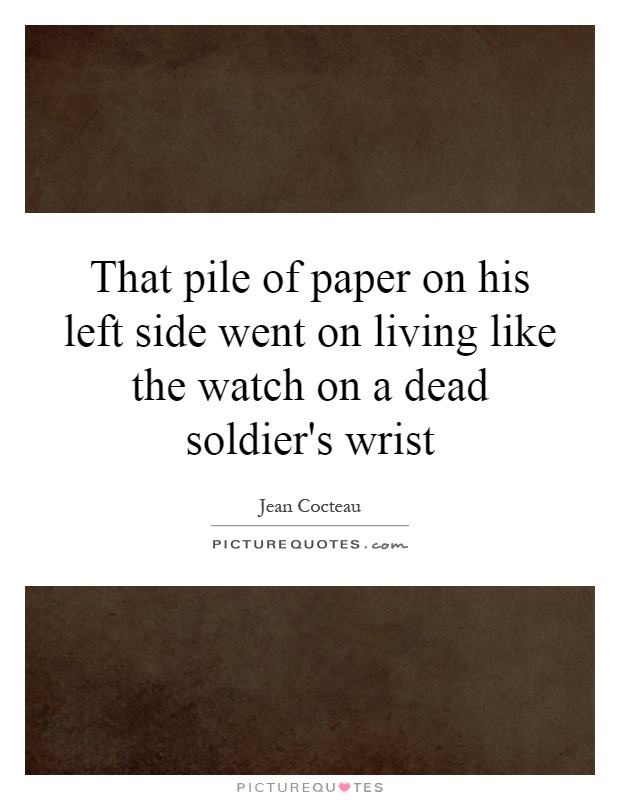
That pile of paper on his left side went on living like the watch on a dead soldier's wrist
Jean Cocteau was a French poet, playwright, and filmmaker known for his avant-garde style and surrealistic themes. His work often explored the complexities of human existence and the blurred lines between reality and fantasy. In his writing, Cocteau frequently used vivid imagery and metaphor to convey deeper meanings and emotions.The phrase "That pile of paper on his left side went on living like the watch on a dead soldier's wrist" is a perfect example of Cocteau's poetic and enigmatic style. This sentence evokes a sense of haunting and eerie beauty, drawing parallels between the inanimate objects and the human experience.
The image of a pile of paper continuing to "live" despite its lack of consciousness or movement is a powerful metaphor for the enduring nature of art and creativity. Just as the watch on a dead soldier's wrist continues to tick away the seconds, the pile of paper on the left side of the room remains a testament to the artist's presence and legacy.
Cocteau's use of this metaphor suggests that art has a life of its own, separate from the artist who created it. The words on the page, the strokes of the brush, the notes of the music – all of these elements have a vitality and energy that transcends the physical world. They exist in a realm of their own, continuing to resonate and inspire long after their creators have passed away.

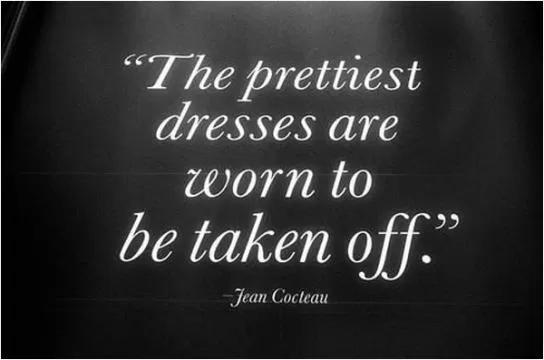
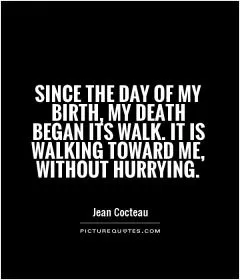
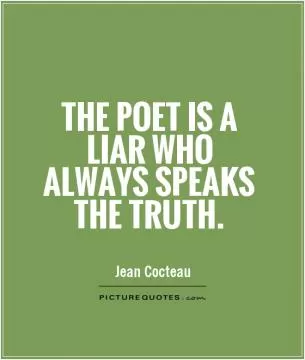



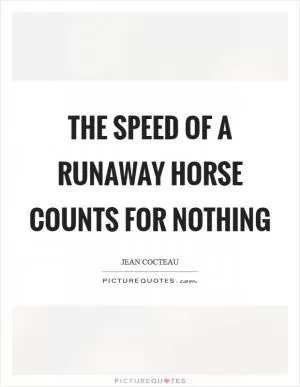
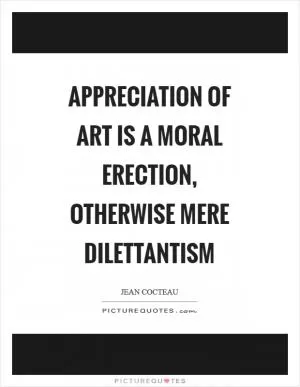

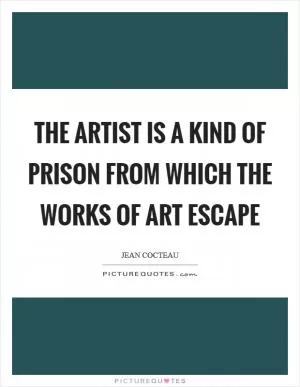
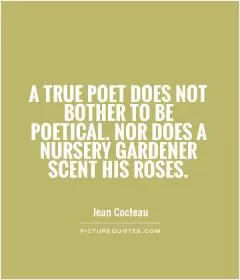
 Friendship Quotes
Friendship Quotes Love Quotes
Love Quotes Life Quotes
Life Quotes Funny Quotes
Funny Quotes Motivational Quotes
Motivational Quotes Inspirational Quotes
Inspirational Quotes